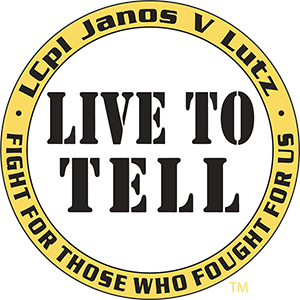Hidden Wounds of War: How one Florida Veteran’s Mother has made a difference
by Ruth Roman
Many Americans have witnessed the obvious wounds of war, as our military heroes return home missing limbs, handicapped and by IED’s, roadside bombs, and combat injuries from the wars in Iraq and Afghanistan, however, there are just as many ‘hidden wounds’ that go unnoticed and are under reported in the news. PTSD, post traumatic stress disorder, and TBI, traumatic brain injury, has contributed to increasing suicides from returning Vets. Military suicides nearly doubled from 2001-2011, with the spike being attributed to primarily the Army, the largest service branch. In addition, traumatic brain injury diagnoses have tripled since the beginning of the wars. Surviving family members, who try to piece their lives back together, have raised many questions about the medications administered by the Veterans Administration, treatment by the physicians handling the overload of veteran’s cases and prevention of future suicides of our servicemen and women.
One such case is that of LCPL Janos V. Lutz, who conducted tours of duty in both Iraq and Afghanistan and was just 24 years old when he took his life. He was diagnosed with PTSD, TBI and had an injured back when he fell into an irrigation ditch during a combat mission, in addition to losing 14 of his combat brothers in one summer during one of his tours of duty. His Mother, Janine, related to me in our interview, that ‘the signs were there;’ but I didn’t know it then; we still lost our son. A proud Mother, she pointed to pictures on her wall of happier days, childhood pictures of her son boating and enjoying his life; a life that had so much to offer that was cut short prematurely.
Johnny went to the Ft. Lauderdale VA on January 4th, 2015 to seek help for his depression that was triggered by the breakup of his girlfriend. Mr. Lutz sat there teary eyed as he told his doctors that he had his Mother to lock up his guns and pain medications and had her dole them out to him. Their treatment for his cry for help was 14 Klonopin and 90 Morphine. Noted twice in his medical records from previous doctors was, “Do not give Mr. Lutz Klonopin.” Years prior he had been prescribed klonopin on two previous occasions, which caused suicidal ideations and one previous attempt. We will never know if they read his medical records. His family was not informed about the new prescriptions.
Eight days later, the former machine gunner returned to his childhood bedroom and ingested large amounts of morphine, buproprion and klonopin along with a few beers. He wrote the words ‘DNR’ on his head; indicating ‘Do Not Resuscitate’ in a black marker on his forehead along with a note to his family explaining his actions and asking for forgiveness.
In retrospect, LCPL Lutz’s case had been terribly mishandled, his doctors never conducted a complete work up for his brain injury nor did he receive proper treatment for his PTS and his family was not fully involved in his treatment plan. Could it be that the V.A. has been overloaded with too many cases and veterans needing their services? Shocking statistics reveal that 22 Veterans commit suicide every day, according to the 21 states reporting these numbers.
Young veteran’s suicides are not limited to gender, either. Sgt. Kimberly Agar, a former Texas beauty queen who was awarded several medals, including a purple heart during her tour of duty in Iraq, was an equipment driver in the army when her vehicle was struck by an I.E.D. She was diagnosed with T.B.I and damaged hearing as the result of the attack and suffered from ringing in the ears, constant headaches and nausea in addition to anxiety and depression. In 2011 Kim took her life while stationed overseas in Germany. Kim’s Mom, Margy, has been consumed with her daughter’s death keeps her pageant crowns on a corner in the living room and her Army blue dress hangs on the door. She is one of many Vet mothers that are haunted by the premature death of their child by suicide.
After her son’s untimely suicide, LCPL Lutz’s Mother, Janine, realized that she was not alone and needed to bring awareness to PTSD, and she started a 501c3 nonprofit, “Live TO Tell.” She has created a Memorial Wall with collected pictures of Vets who are victims of suicide and has their pictures and biographies on Face book so they will always be remembered. Through her organization, she is raising awareness of PTSD and has designed a ‘Buddy Up Program,’ where Vets can get together, have dinner and provide a support system for each other. During times of stress they can contact each other and be the link that will help a Vet in need. In addition, a ‘Family System’ has been developed for Vets with PTSD who have been affected by triggers of past events in battle that bring on anxiety and agitation. The system is in codes: Code Green- everything is o.k., Code Yellow- I’m feeling anxious; my family and friends cannot take this personally; I need space; and code Red- I’m full blown; I need to talk to a buddy; I need help! Currently there are over 125 local ‘buddies’ in South Florida and another chapter has been established in Dallas, Texas. Her goal is to establish chapters in every state to provide support to our returning Vets. Ms. Lutz has raised funds through Motorcycle Rides and fundraising events, such as the “Cowboys Fundraiser” planned for October 17th. She has spoken to the Tea Party Ft. Lauderdale, Republican clubs, other civic groups and has appeared on a number of radio stations to raise an awareness of PTSD, TBI and suicide among our Vets.
EDITORS NOTE: Please follow Mrs. Lutz’s organization, “Live to Tell” on Face book and Twitter: MoAB@LCplLutzLiveToTell.org or her website www.LCplLutzLiveToTell.org
retrieved from: http://drrichswier.com/2015/09/23/hidden-wounds-of-war-how-one-florida-veterans-mother-has-made-a-difference/


